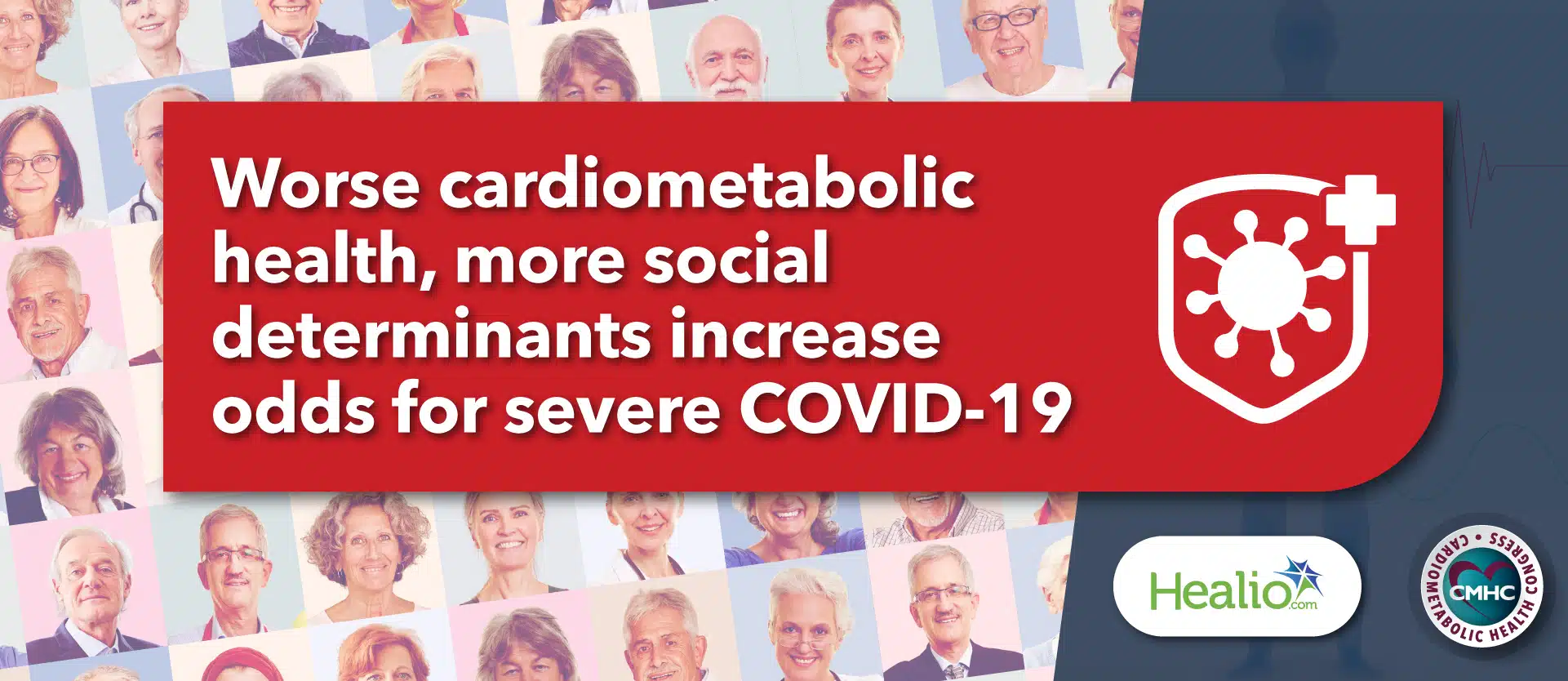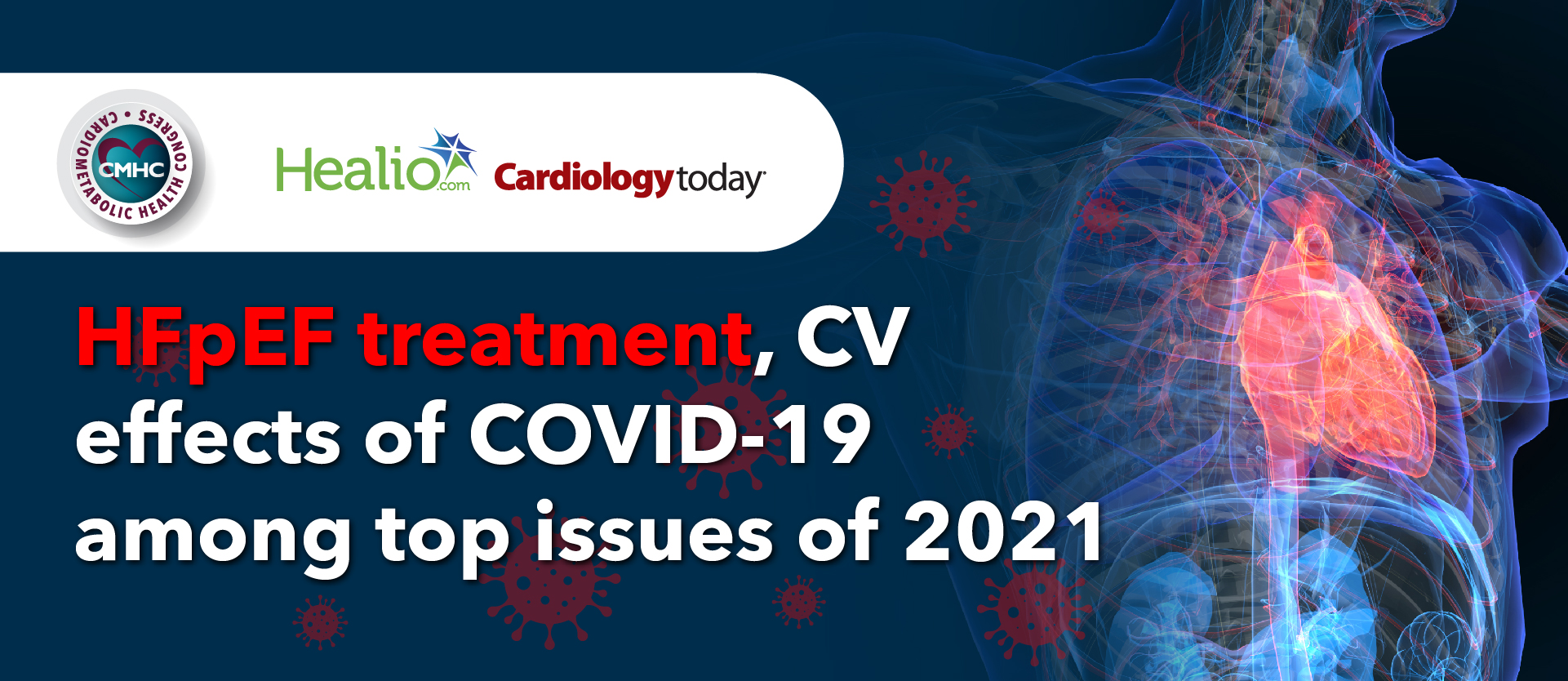In 2020, COVID-19 was the third leading cause of death in the United States, claiming over 375,000 lives. Earlier this year, the virus’s mortality rate outpaced that of cardiovascular disease and cancer, making it the number one cause of death. While the pandemic environment has thankfully eased and rates of illness, hospitalization, and mortality have significantly decreased across the U.S., the health care system and the population it serves continue to bear an unprecedented burden.
What positioned the nation for failure in the face of a highly infectious virus, worsened public health outcomes during the pandemic, and will continue to leave the population vulnerable to illness long after it is over, are pervasive health inequities. Undeniably, the COVID-19 pandemic shined a spotlight on cardiometabolic health disparities – among racial/ethnic minority groups in particular – that are impossible to ignore.
Distinguished Cardiometabolic Health Congress (CMHC) Senior Planning Committee member and prominent cardiologist Keith C. Ferdinand, MD, tackles the complex interplay of COVID-19 outcomes in underserved populations, social injustice, and cardiometabolic health disparities in a recently published article. Available in the American Journal of Preventative Cardiology, Dr. Ferdinand’s article “Disparities in the COVID-19 pandemic: A clarion call for preventive cardiology” summarizes his groundbreaking keynote lecture presented at the 2021 CMHC Spring conference. His latest work aims to raise awareness among the medical community and provide practical strategies that clinicians can implement into their practice to bridge health inequities and optimize outcomes in underserved populations.
Cardiometabolic Disparities and COVID-19 Outcomes
As clinical data continues to confirm, patients with obesity, hypertension, diabetes, and other preexisting cardiometabolic conditions experience increased hospitalization and mortality rates due to COVID-19. In the article, Dr. Ferdinand highlights two other important risk factors that directly impact COVID-19 outcomes: high social vulnerability and low socioeconomic status.
Per data from a 2021 study published in JAMA Network Open, hypertension was the most commonly reported preexisting health condition in patients diagnosed with COVID-19 in 2020. Hypertension was present in over half of the patient cohort, while diabetes was reported in over a third of participants. The study also revealed the profound impact of obesity on COVID-19 morbidity; the mean BMI of patients admitted to the hospital due to COVID-19 illness was in the obese range.
Dr. Ferdinand emphasizes the indisputable disparities in COVID-19 outcomes observed between racial/ethnic groups despite a lack of genetic marker or definitive physiologic cause. Rates of hospitalizations are and have been highest among American Indian/Alaskan Native, non-Hispanic Black, and Hispanic/Latinx individuals as compared to non-Hispanic white patients.
All of these factors contribute to vast disparities in health outcomes across the population, especially among those with high social vulnerability, including older persons, members of racial/ethnic populations, and persons experiencing homelessness.
Urgent Need for Preventive Healthcare
Addressing the current fragile state of public health is paramount as the disproportionate burden of the pandemic in racial/ethnic further magnifies existing disparities.
“The best pathway to overcome the distressing high degree of death and disability due to COVID-19 is via immunization uptake and vaccine access, utilizing trusted leaders within various communities to address common vaccine misconceptions and barriers,” Dr. Ferdinand explains in the article, highlighting the immediate need to improve vaccine confidence among minority communities.
Concurrently, underlying cardiovascular and cardiometabolic conditions must be addressed as part of a preventive approach that aims to mitigate disparate health outcomes, not only now but for long-term global health. A key to this is prioritizing early identification and interventional action to combat clinical, behavioral, and cultural factors contributing to these health inequities in daily practice. One of the many tools available is preventative cardiology. Improving the standard of cardiometabolic health, with a greater focus on serving vulnerable populations, can help diminish death and disability across all populations and lead the way toward achieving health equity.
It’s Time to Act
As Dr. Ferdinand conveys, the COVID-19 pandemic unmasked many systemic vulnerabilities, particularly the disparities in cardiometabolic health between racial/ethnic demographics that have long been demanding our attention. Beyond developing strategies to reduce differences in morbidity and mortality due to COVID-19, clinicians and public health officials are being called upon to advance the standard of cardiometabolic health and care. Solving the pervasive challenges of pandemic-related and large-scale health inequities will require the multidisciplinary and longstanding effort of all stakeholders, from patients to national medical organizations.
At CMHC, we are committed to equipping health care providers with the most insightful research and clinical strategies to combat the entire spectrum of cardiometabolic disorders and their risk factors. We are excited to announce the support of our incredible partners in tackling the deep-rooted issue of cardiometabolic health disparities:
Taking Control of Your Diabetes
American Society for Preventive Cardiology
National Minority Cardiovascular Alliance
Association of Physician Assistants in Cardiology
American Medical Women’s Association
For additional information, access Dr. Ferdinand’s full article by clicking here and view the recording of his keynote lecture available on the CMHC COVID-19 Resource Hub.

Keith C. Ferdinand, MD
Dr. Ferdinand is a renowned clinical expert with a career-long history of tackling racial disparities in care through research, clinical work, and advocacy. Among many roles, Dr. Ferdinand serves as a Professor of Medicine at Tulane University and Tulane Heart and Vascular Institute in New Orleans, Louisiana, is the past Chair of the National Forum for Heart Disease and Stroke Prevention, and has served as Chief Science Officer and past chair of the Association of Black Cardiologists. In 2020, Dr. Ferdinand was appointed by Louisiana Governor John Bel Edwards to the COVID-19 Health Equity Task Force Medical Subcommittee.








